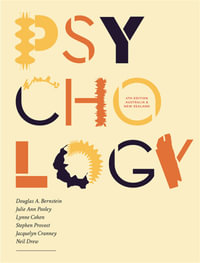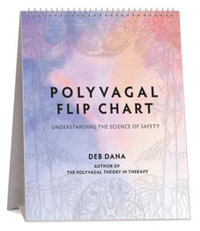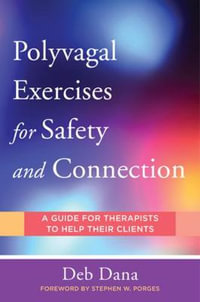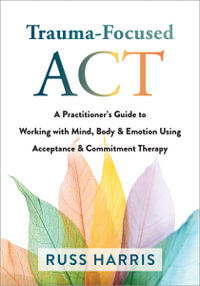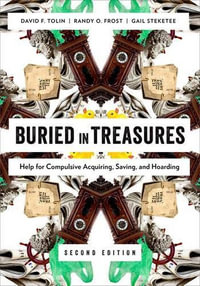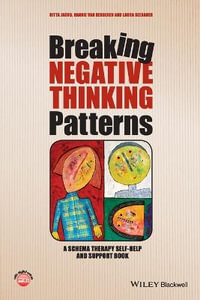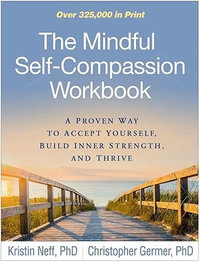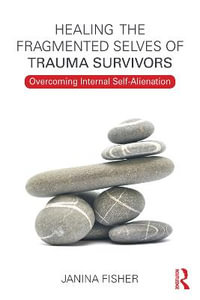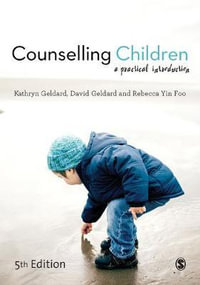Equips the upcoming generation of addiction counselors with crucial knowledge to skillfully treat current and future addictions Grounded in leading-edge, evidence-based research, this hands-on text applies a step-by-step approach to addictions counseling. This book encompasses assessment, diagnosis, and treatment planning; case management; and relapse prevention, with an incisive focus on process addictions and co-occurring disorders. The text covers all essential topics as outlined in the gold standard SAMSHA Counselor Training Manual. Included are detailed guidelines on how to write succinct treatment plans and conduct effective client sessions; case studies; role-playing exercises; and clinical applications to assessment and diagnosis, treatment planning, and case management. Counselor Perspectives--interviews with experienced clinicians working with varied populations throughout the country offer the wisdom of those who have been there.
Critical topics unique to the book include the role of neuroscience in addiction treatment, relapse prevention, and advocacy. In addition, the text offers specific chapters on process addictions and co-occuring disorders as well as a separate chapter on multicultural counseling covering gender, racial, ethnic, sexual orientation, age, religion, and disability issues. It is also distinguished by an abundance of downloadable forms and documents, including screening instruments, treatment plan format templates, treatment plan examples, biopsychosocial assessment forms, informed consent forms, confidentiality forms, case management forms, and more. Pedagogical elements to help learners process and apply concepts inlcude key terms, learning activities, discussion questions, recommended readings/resources and chapter summaries. Faculty aides include an instructor's manual with sample syllabi, CACREP mapping tools, test bank, and PowerPoint slides. This essential resource will be valued as a primary textbook for any course that focuses on addiction counseling and treatment. Purchase includes digital access for use on most mobile devices or computers.
Key Features:
- Describes a variety of etiological models and how they become a means of assessing biopsychosocial risk factors
- Delivers step-by-step guidelines on how to write concise treatment plans and for conducting effective treatment sessions
- Devotes a chapter to motivational interviewing to promote willingness to change
- Includes cutting-edge research pertaining to neuroscience and its applications and evidence-based treatment practices
- Provides separate chapter on multicultural counseling and substance use disorders among people of diverse races, ethnicities, genders, class, ages, and spirituality
- Offers real-world insights with Notes from the Field feature
- Facilitates practical application through role play exercises, treatment technique and assessment case examples, biopsychosocial assessment guidelines, how to provide client feedback, and more
- Includes multiple digital downloadable tools
About the Authors
Alan A. Cavaiola, PhD, LPC, LCADC is a full Professor and a member of the Graduate Faculty at Monmouth University (West Long Branch, NJ) where he serves as Director of the Addiction Studies program. Dr. Cavaiola also served as an Associate Editor of the journal Substance Abuse from 2013 to 2018. He is also a member of the Board of Directors of the International Coalition of Substance Abuse Educators (INCASE) from 2014 to the present. Dr. Cavaiola has co-authored several books including:
Assessment and Treatment of DWI Offenders, Crisis Intervention: A Practical Guide and
Crisis Intervention Case Book.
In addition, Dr. Cavaiola has authored several scholarly research publications and has presented his research as several national and international conferences. Prior to beginning his teaching career, Dr. Cavaiola served as the clinical director of addiction treatment programs at Monmouth Medical Center that included an inpatient adolescent treatment program as well as adult outpatient services.
Amanda Giordano, PhD, LPC is an associate professor of counseling at the University of Georgia. She specializes in addiction counseling and has clinical, instructional, and scholarly experience related to both chemical and behavioral addictions. Dr. Giordano is the sole author of a clinical reference book titled,
A Clinical Guide to Treating Behavioral Addictions: Conceptualizations, Assessments, and Clinical Strategies.. She works to advance the counseling field with rigorous research and has published over 45 peer-reviewed articles and book chapters.
Dr. Giordano regularly teaches addiction counseling courses at both the undergraduate and graduate level. In 2018, she was awarded the Addictions/Offender Educator Excellence Award from the International Association of Addictions & Offender Counselors. Additionally, Dr. Giordano has experience as an editorial board member for several prominent counseling journals including the
Journal of Addictions & Offender Counseling, Journal of Counseling & Development, and
Counseling & Values. Dr. Giordano serves on the American Counseling Association (ACA) of Georgia Leadership Council, the board of the Association for Assessment and Research in Counseling (AARC), and is a member of several other ACA divisions.
Nedeljko Golubovic, Ph.D., is an assistant professor in the Department of Counseling & Marital and Family Therapy at the University of San Diego. Dr. Golubovic also serves as a Program Director for the Opioid Workforce Expansion Program funded by the Health Resource and Service Administration. The primary goal of Dr. Golubovic's scholarly work is further exploration of addiction issues and trauma. More specifically, Dr. Golubovic is interested in assessing the intersection between addiction and trauma and examining the consequences of stigmatization and bias related to both areas.
In the past, he was a part of the National Institute on Drug Abuse sponsored teams for monitoring drug trends in the United States. Regarding his teaching experiences, Dr. Golubovic has been dedicated to training master's level professional counselors. He has experience teaching a variety of core counseling classes, but his primary focus has been on preparing future counselors to work with addiction and trauma-related issues. In 2020, Dr. Golubovic was awarded the Addictions/Offender Educator Excellence Award from the International Association of Addictions & Offender Counselors. Dr. Golubovic also has experience as an editorial board member, and he currently serves on the editorial board of the Journal of Counseling Leadership and Advocacy.
Dr. Golubovic's service involvement includes Committee Co-Chair of the Emerging Leaders Program for the Association for Counselor Education and Supervision, Leadership Committee for the Association for Counselor Education and Supervision, and a Grant Reviewer for the Chi Sigma Iota International, as well as involvement in several ACA divisions.



